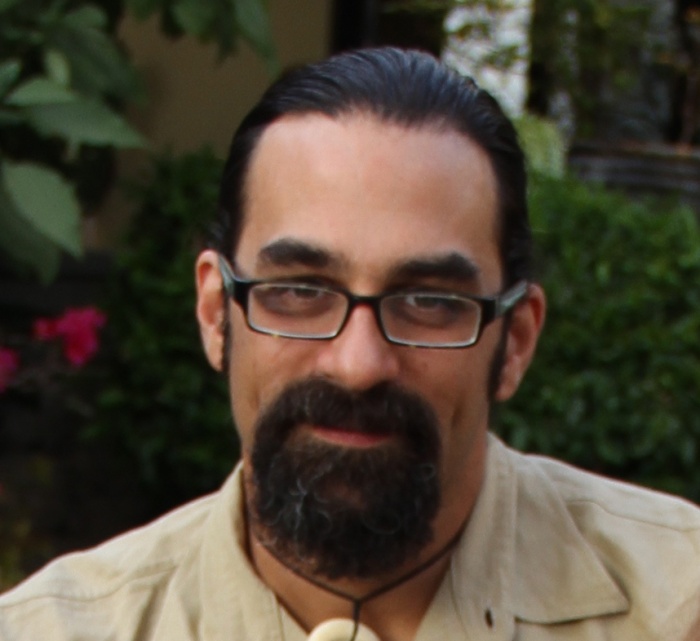Most postsecondary students have at least heard of bitcoin currency. Though a popular topic in the media for the last year, what bitcoin actually is has remained an unclear concept for many people.
To help inform Camosun students who wish to learn more, a debate has been set up for mid-September between two of the college’s instructors, Bijan Ahmadi and Francis Michaud, to discuss bitcoin’s legitimacy as a currency.

About five years ago, a computer scientist and researcher wrote about a concept called crypto currency. The idea was that an electronic medium of exchange could be established based off of a set of encrypted codes.
Basically, to “mine” a bitcoin you set your computer, using a program called sha1sums, to try to solve one of 21,000,000 existing mathematical equations. If the program is able to solve one, then you get a bitcoin.
The idea is that this crypto currency could actually be a decentralized, totally anonymous, private, nongovernmental, non-country-based form of exchange between partners.
In recent months, bitcoins have been a controversial topic with many people divided over the value and usefulness of such a currency. With some making a lot of money off only a few dollar investments and others losing just as much, the crypto currency stands on unstable ground. Despite this, Camosun professor Bijan Ahmadi says that the system isn’t as complex as it may appear, and that bitcoins are simply trying to find their place.
“Imagine instead of bitcoins it’s done with purple pieces of paper,” says Ahmadi, who will be on the pro-bitcoin side of the debate. “I could give you a piece of paper for some work you did for me, then you take that piece of paper to the store and buy a pair of jeans with it. The guy from the store takes that piece of paper and gives it to his window washer, and she takes that piece of paper and gives it to someone else, and if everyone else just traded these pieces of paper that’s what bitcoin is like; a fiat currency, they call it. It’s a currency that has no intrinsic value itself, but is trusted as a medium of exchange.”
Because crypto currency is computer- and internet-based, and not attached to any specific location, it could potentially act as a private exchange between partners.
“The beauty of it,” says Ahmadi, “is that I can hire some guy in Bangladesh to do some coding for my website and I don’t have to send him a wire transfer through the bank, I can just send him a bitcoin, and it takes 10 minutes and it’s free.”

Despite the many advantages, Ahmadi states that there are some problems that would have to be solved before bitcoin could operate as a normal currency.
“The concern is that it’s really volatile in its exchange rate with US dollars. I think the first major transaction that people knew about was thousands of bitcoins for a slice of pizza, and it’s been on kind of a downward trend for a while,” says Ahmadi. “It’s just that high volatility has led people to hold on to their bitcoins.”
On the other side of the debate, professor Francis Michaud isn’t so optimistic about bitcoins, and he says they shouldn’t be considered a currency at this time.
“My side of the debate is that bitcoin is not, or should not, be considered currency right now,” says Michaud, who will be facing off against Ahmadi. “Basically, in economics we define money as having three characteristics, and I feel that bitcoin essentially lacks two of these characteristics. The first one is that money should be a reserve of value, and the other one is that it is a medium of exchange. I think that bitcoins don’t satisfy these two characteristics that money has; I don’t think it’s actually useful as money.”
Michaud goes on to enforce his argument, basing it on the concerns that Ahmadi previously mentioned.
“With the fluctuation of the price of bitcoin right now, who wants to pay in a currency that can lose hundreds of dollars of value in the span of one hour? You can make a payment in the morning and by the time the person you were trying to pay can receive it and transfer it back into dollars, it’s lost hundreds of dollars of value,” says Michaud. “Who wants to accept that as a currency?”
With both sides making some excellent points, the debate promises to be an exciting event for both those going and those debating.
“We’ve never had debates, [Ahmadi] and I,” says Michaud. “We work together and we talk often, so I know he’s a pretty smart guy, but I have no clue how he debates. Our goal is not to destroy each other, it’s to better inform students on large. We don’t see this as a battle between him and me, but more as a nice activity to try to teach everyone a bit about what crypto currencies are.”
Ahmadi agrees that the debate should be an interesting event for the Camosun community.
“I’m really looking forward to debating [Michaud],” says Ahmadi. “He’s very well read on the subject as well, and it’s promising to be a fun event.”
Bitcoin speaker debate
5:30pm Monday, September 22
Campus Centre, Interurban campus, Room 124 A/B

